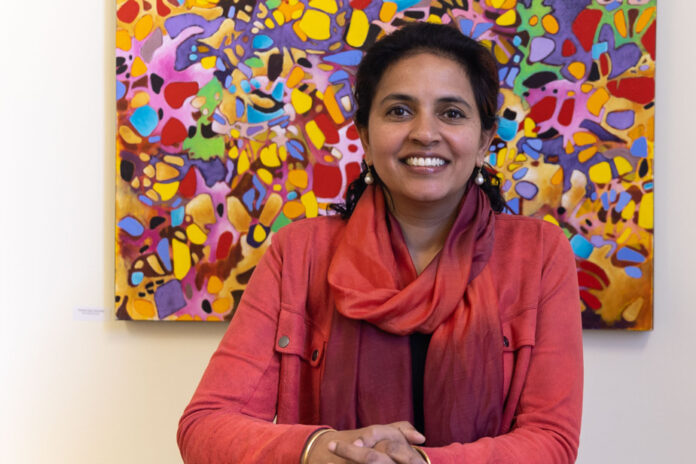It was not my first goal to become a leader. I simply wanted to contribute to Quebec society. When I arrived here in 2000, I told myself that I had to learn the language and the culture. Learning French allowed me to appreciate Quebec culture. Then I wanted to get involved. I volunteered at the PROMIS center, where I learned French, and it was there that I got my first job. Subsequently, I was offered a position on the board of directors of this NPO. At that time, I didn’t know words like “quorum”! I got involved in this board, in the board of a classical music society in my community and as president of the South Asian Women’s Community Center.
All these roles combined with my MBA at McGill-HEC Montreal gave me confidence. Initially, when I started classes at university, I had impostor syndrome, because I came from an NPO and the other students came from different industries. But afterwards, when I was offered this leadership role, I said to myself: if people believe in me, I should at least give it a try.
Learning the language, the culture and getting involved opens doors. We meet people, it expands our network and it brings opportunities.
Already, when I emigrated here, I found that Montreal was a city with great diversity. It gave me a lot of hope. I said to myself: I can be a member of this society and still be proud of my Indian roots. It is true that there were problems with the professional orders. These are things that are getting better, but it’s not perfect. My work at Microcredit Montreal is always relevant, because we make loans to people from elsewhere who need to join a professional order and integrate their profession as quickly as possible. As was the case for me 22 years ago with my training as an accountant.
Since 2000, we talk more about diversity and inclusion. It has become an impact indicator. But we have to move from words to action. I hope it will come. Because the more we value people from different cultural communities who are leaders, the more it makes others want to imitate them.
First, you need to be aware that you want to go towards this. It’s not just to look good, it’s proven to get results. Then, you have to take action by giving people from diverse backgrounds the opportunity to get their first job and be promoted. It is these models from diversity that will make people want to aspire to be president of a bank, for example. To achieve this, employers must be open and put policies and practices in place to recruit people who are different from those in their background. Once in office, people from diverse backgrounds need tools to feel well supported and to move forward in the ecosystem in which they work.
We must create and provide opportunities for people from all walks of life to reach their full potential, either by having a job that highlights their skills, or by using their passion to become entrepreneurs. When people contribute with their full potential, they are happy. There are economic benefits, but also social ones. Indirectly, there are repercussions on young people, who see their parents as positive role models. When people thrive, they contribute to a more inclusive society and, therefore, to a more inclusive economy.
By lending money to people so that they have recognition of their professional competence or to start a business project. For entrepreneurs, we have a progressive approach. We encourage them to test their ideas and we give them support. We also tell them to come and see us when things are going well, but also when things are going badly to find solutions.
Most of the time, we talk to leaders when they have successes. But we must not forget that there are also lessons to be learned when things are going badly. To access better leadership, we must learn from our mistakes along the way.

